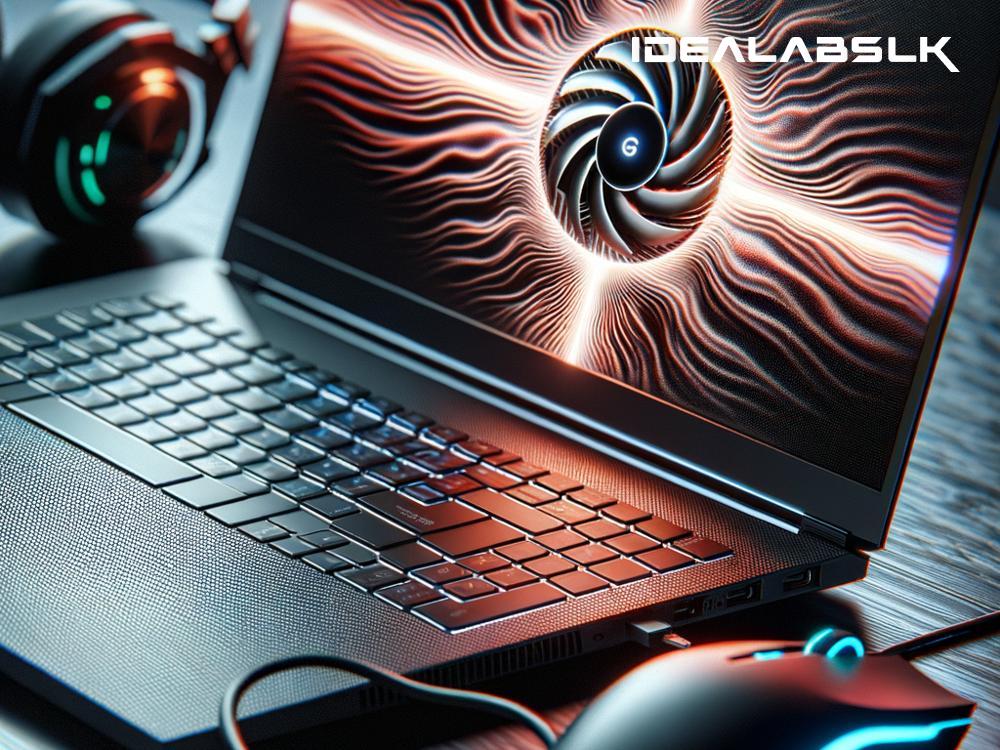Why Your Laptop Is Overheating While Gaming
Gaming on a laptop is fun and a great way to pass the time, keep up with friends, or even show off your skills online. But, have you ever noticed your laptop turning into a little oven after just a short while of gaming? It's not just annoying; it can actually be harmful to your laptop in the long run. Let's dive into the reasons your laptop starts to overheat during those gaming sessions and what you can do about it.
High-Performance Demands
Most modern games are designed to deliver stunning graphics and complex game mechanics. These features make the games enjoyable but demand a lot from your laptop's hardware. When your CPU (Central Processing Unit) and GPU (Graphics Processing Unit) work overtime to run these games, they generate a lot of heat. If this heat doesn't have a way to escape or if it builds up too quickly, your laptop will start to overheat.
Dust and Debris
Over time, dust and debris can accumulate inside your laptop, particularly in the fans and air vents. This buildup can block the airflow inside your laptop, making it difficult for the heat to escape. When the fans cannot properly expel the hot air because of the dust accumulation, your laptop's temperature will start to rise, leading to overheating issues.
Old or Deteriorating Thermal Paste
Thermal paste is a heat-conductive paste that's applied between the CPU, GPU, and their heat sinks. Its main job is to improve heat transfer from the processors to the heat sinks, which then dissipate the heat. Over time, this paste can dry out or deteriorate, resulting in less effective heat dissipation. When the thermal paste isn't doing its job correctly, heat builds up, and—you guessed it—your laptop starts to overheat.
Inadequate Cooling System
Some laptops are not designed with high-intensity gaming in mind. These laptops might have inadequate cooling systems that are not capable of handling the heat generated during gaming sessions. If the cooling system (fans and heat sinks) is too small or not efficient enough to manage the heat output, your laptop will likely overheat when you're gaming.
Running on High Settings
Playing games on their highest settings can offer the best visual experience, but it also puts the most strain on your laptop's hardware. Higher settings mean more work for your GPU and CPU, which results in more heat. If your laptop isn't equipped to handle this increased heat production, it will overheat.
What Can You Do About It?
Clean Your Laptop
Regularly cleaning the dust and debris from your laptop's air vents, fans, and other internals can greatly improve airflow and cooling. You can do some basic cleaning yourself with a can of compressed air. For a deeper clean, you might want to take it to a professional.
Improve Ventilation
Make sure your laptop is always on a hard, flat surface which allows air to circulate freely around it. Avoid using it on soft surfaces like beds and couches, which can block the air vents.
Upgrade Your Cooling System
Consider investing in a good cooling pad for your laptop. These pads provide extra fans that help pull heat away from your laptop. If you're comfortable tinkering with your laptop's internals, you could also consider replacing old fans or even upgrading your cooling system, though this might not be an option for all laptop models.
Replace the Thermal Paste
If your laptop is a few years old and you're comfortable with opening it up, replacing the thermal paste can be a good weekend project. Fresh thermal paste can significantly improve heat dissipation. Again, if you're not sure about doing this yourself, seeking professional help is the way to go.
Adjust Your Game Settings
If your laptop continues to overheat, try lowering the graphics settings of your games. This might not be ideal, but it can significantly reduce the strain on your hardware and, consequently, the amount of heat it generates.
Conclusion
Laptop overheating while gaming is a common issue, but it's not one that you have to live with. Understanding why your laptop heats up is the first step toward finding a solution. With proper maintenance, the right gaming setup, and a few tweaks to your gaming habits, you can keep your laptop cool and your games running smoothly. Remember, taking care of your laptop not only prolongs its lifespan but also ensures a better gaming experience. Happy gaming!

